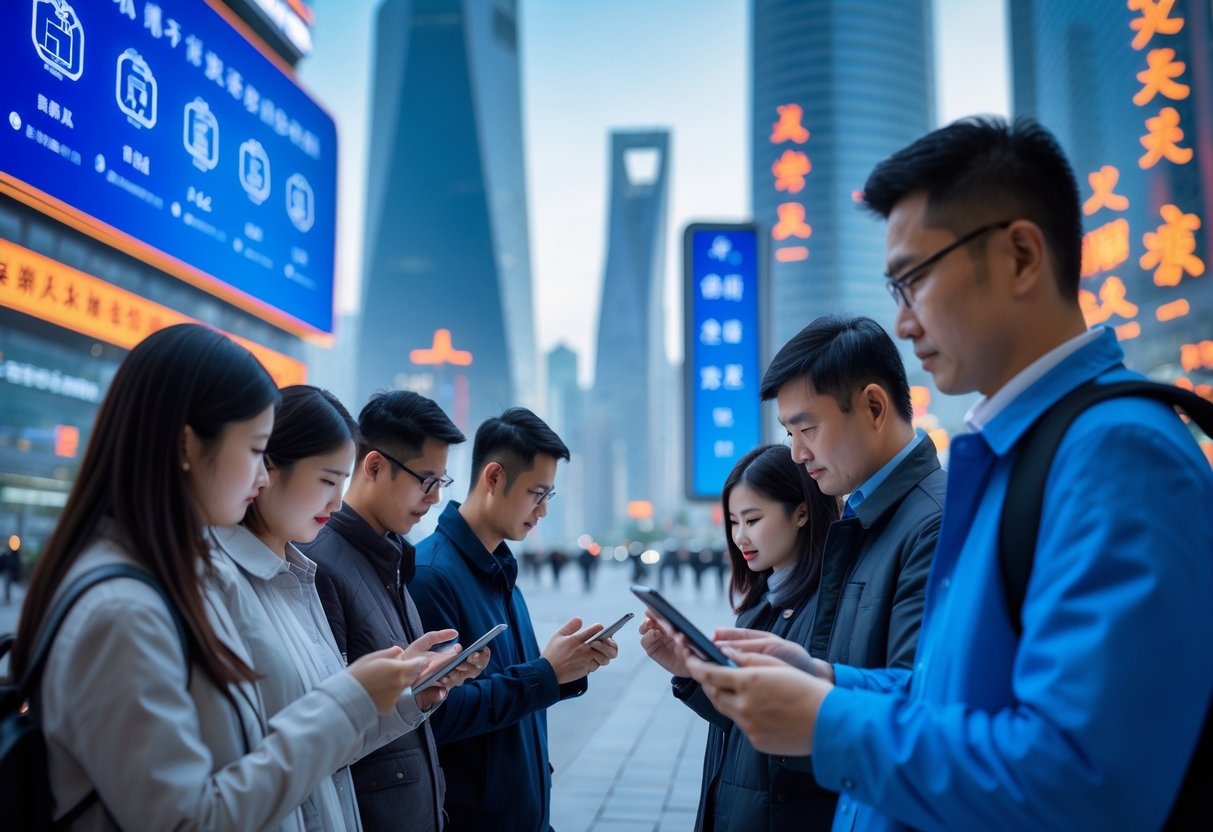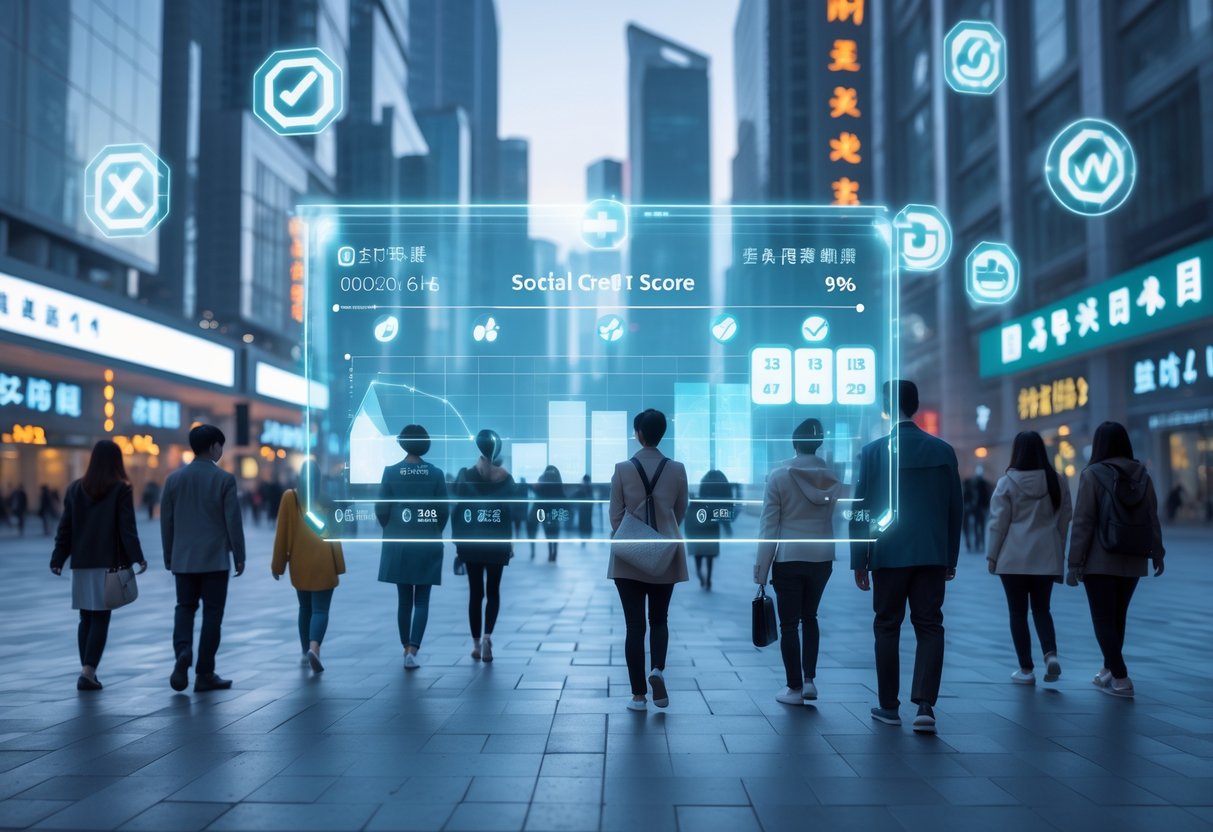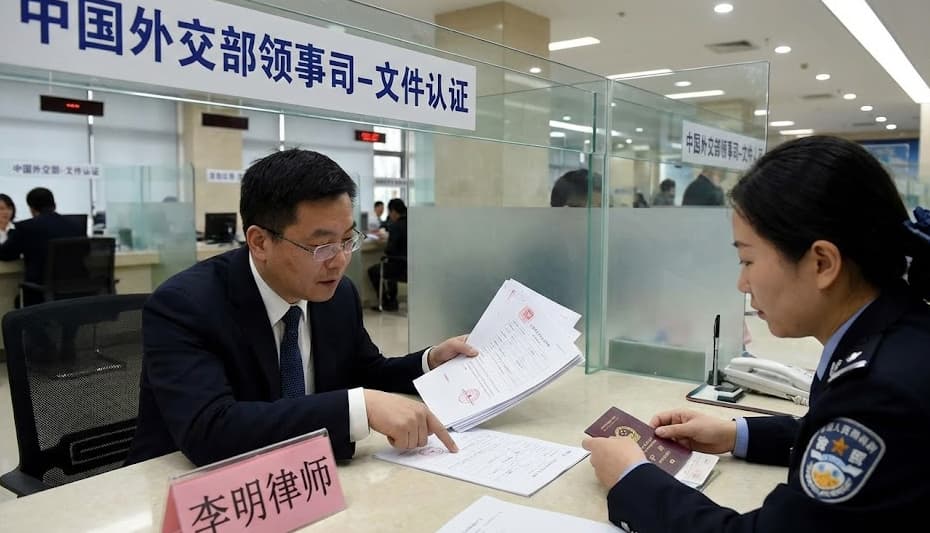A lot of people outside China picture a single score that decides if you’re trustworthy or not. Honestly, that’s not really how it works.
China’s social credit system is a patchwork of local programs, government databases, and company records. It tracks if you follow rules and laws.
There’s no nationwide “social credit score” for everyone, but there are systems that rate trust in certain areas like business, taxes, and public behavior.
You’ll notice its effects when companies or people get or lose access to loans, contracts, or even travel options. The system’s supposed to build trust and honesty, but it definitely brings up questions about privacy, fairness, and government power.
Figuring out how it really works can help you see what’s true and what’s just rumor.
Key Takeaways
- China’s social credit system isn’t one national score.
- It uses government and business data to judge trust in certain areas.
- The system changes how people use services and makes people worry about privacy.
What Is Social Credit Score in China?

China’s social credit system checks if people, businesses, and organizations follow laws, rules, and social expectations. It pulls together info from lots of places to see who’s honest and who isn’t.
If you follow the rules, you get rewards. If you don’t, you might get punished.
Definition and Core Concepts
The social credit score in China is part of a bigger regulatory system run by the government. It tracks if you or your company pay debts, follow contracts, and obey laws.
There isn’t one big national database. Instead, there are lots of local and industry programs. These pull info from courts, tax offices, and other regulators to build a record of social creditworthiness.
Authorities use this info to give out rewards or penalties. Good records might get you easier loans or public services. Bad records could mean travel bans or business restrictions.
The system tries to push people and companies to be honest and reliable.
Historical Development and Government Objectives
The China social credit system started as an idea in the early 2000s. It grew after 2014, when the State Council made an official plan.
Pilot programs in cities like Hangzhou and Suzhou came first. Later, they spread the system across the country.
The system’s main goals are to improve governance, make markets more honest, and build trust. By mixing data from different agencies, the government wants to stop fraud, tax dodging, and rule-breaking.
The system also fits into the “Rule of Law in China (2020–2025)” plan, aiming for more open government decisions. In real life, it’s both a data tool and a way to control behavior.
Social Credit vs. Financial Credit
A social credit score isn’t the same as a financial credit score like banks use. Financial credit is just about your borrowing and payment history.
Social credit looks at more stuff—like if you follow the law, keep promises, or even protect the environment.
So, China’s system checks trust in society, not just if you pay your bills.
Want to understand how business identification works in China and why it matters for compliance? Learn more by reading our guide, Unified Social Credit Identifier USCI Number in China: Guide.
How the Social Credit System Works

You interact with China’s social credit system when your financial, legal, or social actions get recorded and judged for trust. The system uses info from both public and private sources to check if you follow rules and contracts.
Key Components and Data Collection
The system pulls info from a bunch of databases run by government agencies and private companies. Credit China is a main platform. It gets data from courts, tax offices, and regulators.
The Public Security Bureau adds law enforcement and ID records. Private companies help too. Firms like Alibaba and Ant Group share data from Sesame Credit, which tracks online purchases and payments.
Apps like Douyin might add social activity info, depending on local rules. Here’s the kind of data they use:
- Financial records: loans, taxes, payments
- Legal records: court rulings, fines
- Administrative data: licenses, compliance reports
AI helps sort through all this data to find patterns. Privacy protection is weak, since most data comes from sources the state approves.
Scoring Criteria and Evaluation Methods
You get ratings based on how well you follow laws, contracts, and business duties. The People’s Bank of China (PBoC) keeps normal credit records, while other systems check if you pay bills on time or obey rules.
Scores usually depend on clear things like debt payment, tax honesty, and business reputation. Some pilot programs also count social actions, like spreading rumors online.
Authorities use positive and negative lists.
- Positive lists show trusted people or companies who might get loans or contracts more easily.
- Negative lists block things like travel or bidding on projects.
Most of the judging comes from automated data, not people. But you can appeal through official channels if you think there’s a mistake.
Role of Government Agencies and Private Companies
Several agencies run the system. The National Development and Reform Commission (NDRC) sets national policy. The PBoC manages credit rules. Local governments hand out rewards and penalties.
Private companies matter too. Tech firms run scoring models and digital platforms that send data to the government. Ant Group’s Sesame Credit and others act as business partners in the system.
Government and companies work together, sending data back and forth. You might see your credit status pop up in lots of places, from finance apps to Credit China’s public site.
This setup lets authorities track compliance fast, but it also makes people worry about privacy and how transparent the system really is.
Impacts and Consequences of Social Credit Scores

The social credit system changes how you deal with businesses, government services, and even neighbors. It affects your access to money, travel, and jobs with a mix of rewards, punishments, and public pressure.
Rewards for Good Behavior
If you follow the rules, you can get real benefits. High scores might mean lower loan interest rates, priority for government services, and smaller deposits for rent or utilities.
Some cities even give tax breaks or make it easier to get promoted if you’re considered trustworthy.
You might get business licenses or government contracts approved faster. Companies with good records often get public praise for social responsibility.
These perks push people and businesses to do honest deals, pay debts on time, and report things truthfully.
Punishments and Blacklists
If your score drops, you can face restrictions that make life harder. People or businesses on blacklists might lose access to high-speed trains, air travel, or fancy services.
You could get denied permits, limited credit, or have your violations made public. These punishments usually come from tax evasion, false ads, or not meeting legal duties.
Getting blacklisted can also hurt your job chances, since employers and partners check credit records before hiring or signing deals.
- Travel bans on trains and planes
- Limits on government contracts
- Trouble getting loans or credit cards
Effects on Individuals and Organizations
For regular people, the system shapes your reputation. A good score means people trust you. A bad one can block your travel and financial options.
For companies, it’s a compliance tool. Bad records might bring more inspections, higher fines, or getting shut out of public projects.
This setup pushes companies to be open about money reporting, environmental protection, and worker rights if they want to avoid trouble.
The system tries to keep everyone honest, but it can also put a lot of pressure on people and businesses that slip up.
Legal Compliance and Public Shaming
Legal compliance is the core of the social credit system. Authorities collect info from courts, tax offices, and regulators to track what you do.
If you break laws or ignore court orders, your name can show up on public lists anyone can search. This kind of public shaming is supposed to scare people into following the rules.
For companies, repeated rule-breaking can mean public exposure, losing licenses, or getting blocked from bidding on projects. Individuals might see their offenses posted online, damaging their social life.
These steps try to build a culture where people know that following the rules matters, and slipping up can stick with you for a long time.
Curious about how online behavior and legal rules shape your digital presence in China? Discover key insights by checking out our article, Social Media Use in China: Legal Considerations for Expats.
Controversies, Challenges, and Future Outlook

The social credit system in China mixes technology, government rules, and how people act. It’s tricky to pin down, since the way data gets collected and used can change a lot depending on where you live.
People talk a lot about how this system affects daily life. There’s plenty of debate about what’s fair and what’s not.
Debates on Privacy and Surveillance
Many people worry about the amount of data the government collects. Some pilot programs use mass surveillance, grabbing info from cameras, online habits, and even your bank records.
That makes a lot of folks uneasy. Is it worth it to trade privacy for safety?
Some officials say this data helps build trust and stops fraud. Privacy groups, though, warn about possible misuse and the lack of clear rules.
It’s not always obvious how long data sticks around or who gets to see it. Most of the time, the focus stays on businesses and public safety, but critics wonder if it’ll go further.
Honestly, it feels like a classic tug-of-war between making things run smoothly and protecting your own space.
Fragmentation and Local Variations
Some people expect a single, national score, but that’s not how it works. China’s social credit system is actually fragmented, with different cities and provinces running their own tests.
Each place uses its own data and rules. That makes it tough to compare or guarantee fairness.
Some cities focus on businesses, others on whether you pay fines or obey local laws. The rules can change from place to place.
Officials keep trying new tech, but sharing data and enforcing rules the same way everywhere? That’s still a big challenge.
Social Control and Public Perception
For a lot of folks, the system feels like a tool for social control. It nudges you to act “trustworthy”—paying debts, following rules, that sort of thing.
Good behavior might get you better loan rates or make travel easier. Bad marks could block you from business deals or certain perks.
People don’t all feel the same about it. Some think it encourages honesty and safety, while others feel it’s just too much watching.
Support depends a lot on how the system works where you live. If it fights fraud, people seem more okay with it. If it feels like spying, pushback grows.
Final Thoughts
The social credit score in China plays a major role in shaping trust, accountability, and behavior among individuals and businesses. It combines data from financial, legal, and social activities to assess compliance and reliability.
For companies operating in China, understanding how this system works — and ensuring compliance — is essential to maintaining a good reputation and avoiding penalties.
Whether you need help interpreting regulations or managing your organization’s credit standing, expert legal guidance can make a difference. To protect your business and stay compliant, consult China Legal Experts for professional, up-to-date advice.
Interested in how laws affect information, speech, and media freedom in China? Get the full picture by reading our guide, Chinese Censorship Laws: Impact on Freedom & Media.
Frequently Asked Questions
How does the social credit system impact daily life for citizens in China?
The system shows up in things like getting a job, using public transport, or applying for credit. If you’ve got a good record, it might be easier to rent a place or get a loan.
On the other hand, a bad record can hold you back from certain opportunities.
What are the consequences of a low social credit score in China?
If you keep breaking rules or don’t pay your debts, you might lose travel rights or get blocked from luxury purchases. Some people even end up on public lists of defaulters, which can really hurt your reputation.
Can a person's social credit score in China be improved, and if so, how?
You can work your way back up. Paying off debts, following the law, and helping out in your community all help improve your record.
Paying bills on time and staying out of trouble with taxes can also rebuild trust.
What types of behaviors are rewarded or penalized under China's social credit system?
Things like paying taxes, volunteering, and sticking to contracts usually get you points. Stuff like fraud, spreading rumors, or ignoring court orders can cost you.
These records come from all sorts of government and business databases.
Is participation in China's social credit system mandatory for all citizens?
You can’t really opt out, since the system is built into how government and businesses run. But not every part of China uses the same rules or scores.
There’s no single, official score for everyone.
How does China's social credit system use technology to monitor and rate individuals?
Authorities and companies collect digital records, financial data, and information from administrative databases to track what people do.
They usually pull most of this data from places like courts, tax agencies, and credit registries, not from nonstop real-time surveillance.
Subscribe to receive updates
Subscribe to receive the latest blog posts to your inbox every week.






